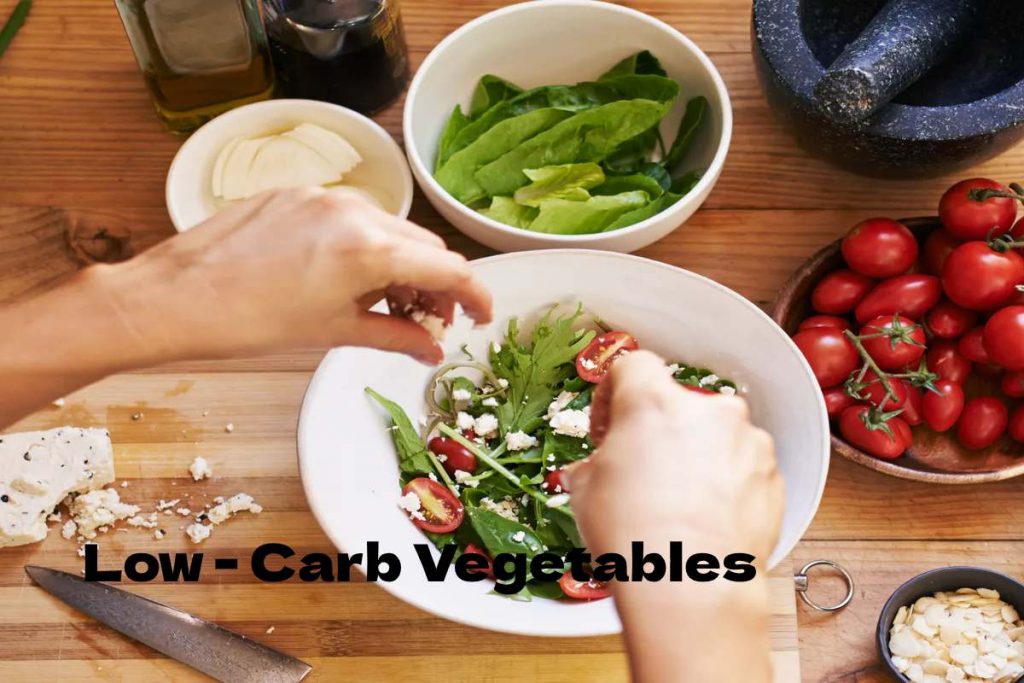Table of Contents
Introduction
Vegetables generally contain vitamins, minerals, and fiber. Still, it may be recommended to eat specific vegetables of particular nutritional value, such as low-carb vegetables, depending on the diet, public health, and dietary body needs. Here are ten low-carb vegetables:
Here are some low-carb vegetables that we recommend to enter into your diet, whether you’re on a low-carb diet or even without a particular diet:
Broccoli
Broccoli is a rich source of vitamins and minerals, preventing several diseases, including cancers, and reducing insulin resistance in people with type two diabetes.
One cup of broccoli contains your total daily need for vitamin C and vitamin K.
Lettuce
Vegetables are low-carb vegetables, and lettuce has many benefits. It contains vitamin K and Vitamin A, essential for eye health, and folic acid, which reduces the risk of cardiovascular diseases by decreasing homocysteine levels in the body.
Mushrooms
in addition to the vitamins contained in mushrooms, mushrooms also act as an antioxidant and anti-inflammatory.
Zucchini
zucchini contains antioxidants necessary to prevent diseases and fiber essential to maintain healthy intestines, so it is recommended to use zucchini as an alternative to high-carbohydrate foods that improve blood sugar levels.
Spinach
Spinach is a vegetable that is very beneficial to human health. It may help reduce damage to human DNA, maintain heart health, and reduce the risk of eye disease.
Spinach is a low-carb vegetable, noting that after cooking spinach, the size of the leaves may decrease and the concentration of carbohydrates increases, i.e., the amount of carbohydrates per cup of cooked spinach is seven times that of an uncooked cup.
Avocado
Avocados have health benefits on the human body, improving digestion, reducing the risk of depression, and protecting the body from cancers.
Avocados are a source of many vitamins such as vitamin c, folic acid, and potassium. And also, avocados contain healthy, beneficial fats that help you feel full.
Cauliflower
Cauliflower is an amazing source of fiber and vitamins, and every single cup of cauliflower contains 77% of your daily vitamin C needs. IT decreases the risk of cancer and heart disease.
We can use cauliflower as an alternative to high-carb foods such as potatoes. And also, rice.
Green Beans
Beans are legumes but contain fewer carbohydrates than other legumes.
Green beans impact brain health during aging because they contain compounds called carotenoids. And also, contain a high percentage of chlorophyll that may contribute to cancer protection.
Celery
one cup of celery contains 53% of your daily vitamin K need.
Celery is a highly low-carb vegetable.
Moreover, celery contains antioxidants that may contribute to cancer prevention and treatment.
Amount of Carbohydrates in Vegetables
In the following table, we show the number of carbohydrates per 100 grams of previous low-carb vegetables:
Vegetable Type
Carbohydrates per 100 g
Broccoli 4.08
Lettuce 3.24
Mushrooms 4.08
Zucchini 3.11
Avocado 8.53
Broccoli 4.97
Green beans 7.06
Celery 2.97
High Carbohydrate Vegetables
Unlike previous low-carb vegetables, some vegetables are high in carbohydrate content, called starchy vegetables, such as:
Potatoes.
Corn.
Sweet potatoes.
Beets.
White carrots.


